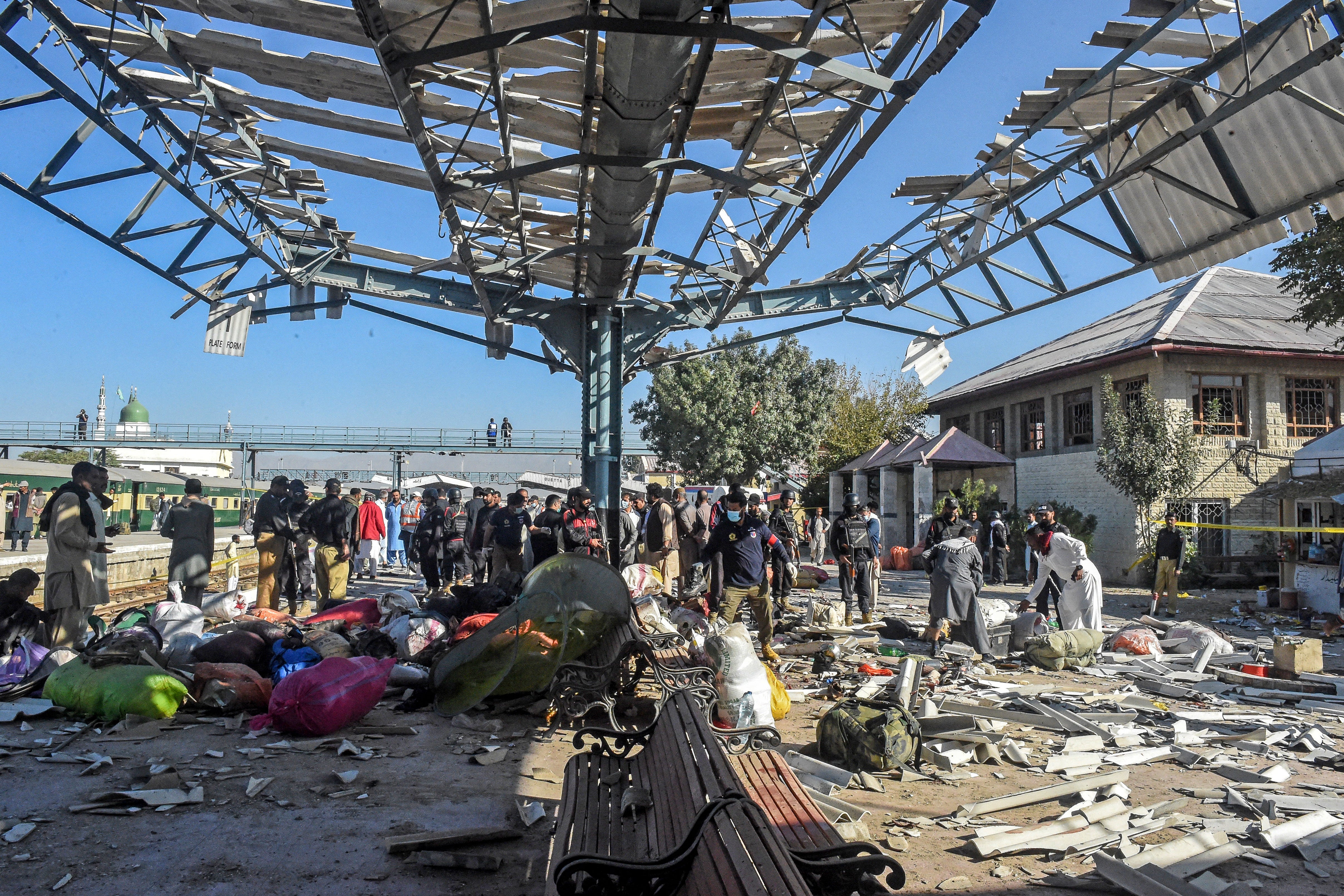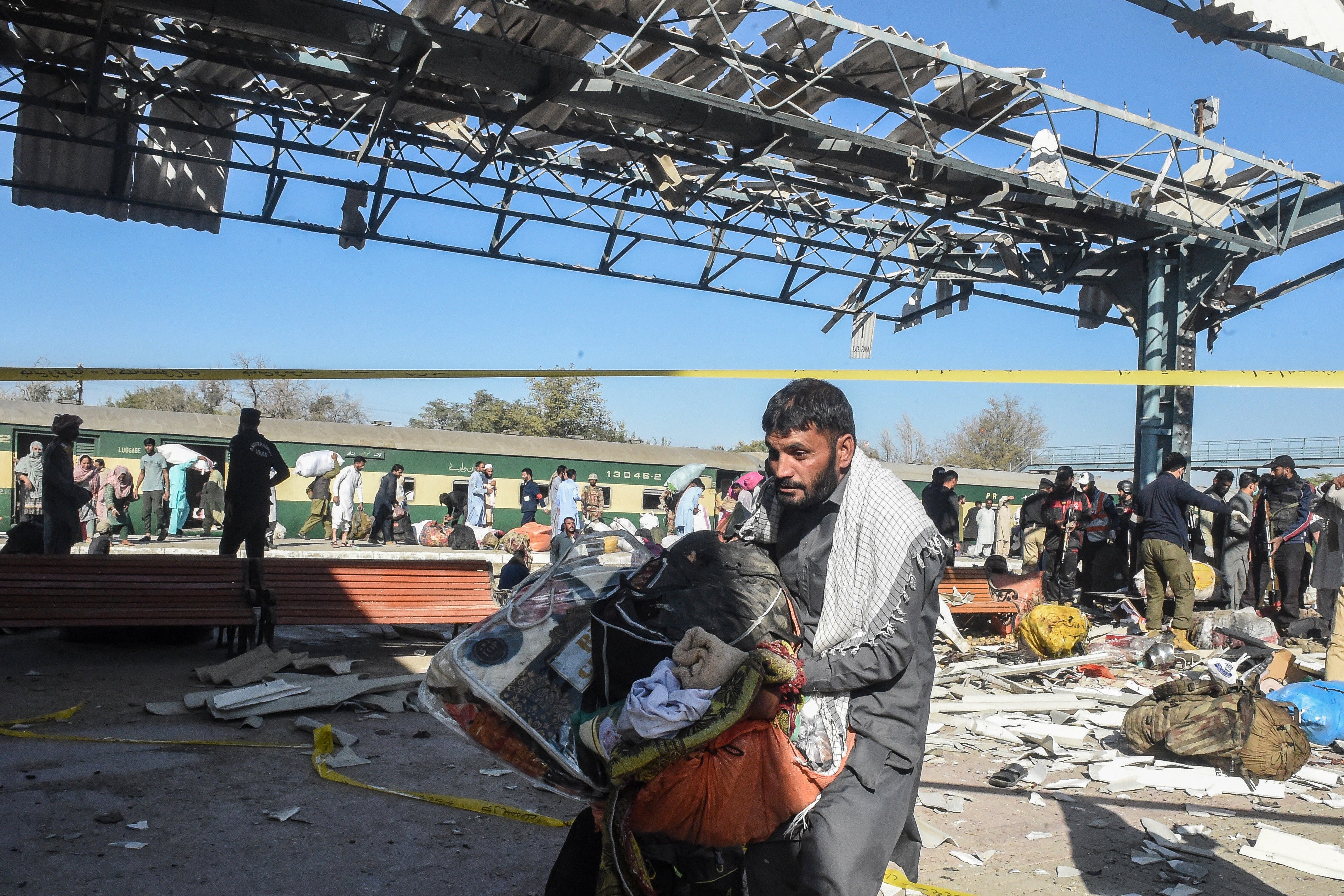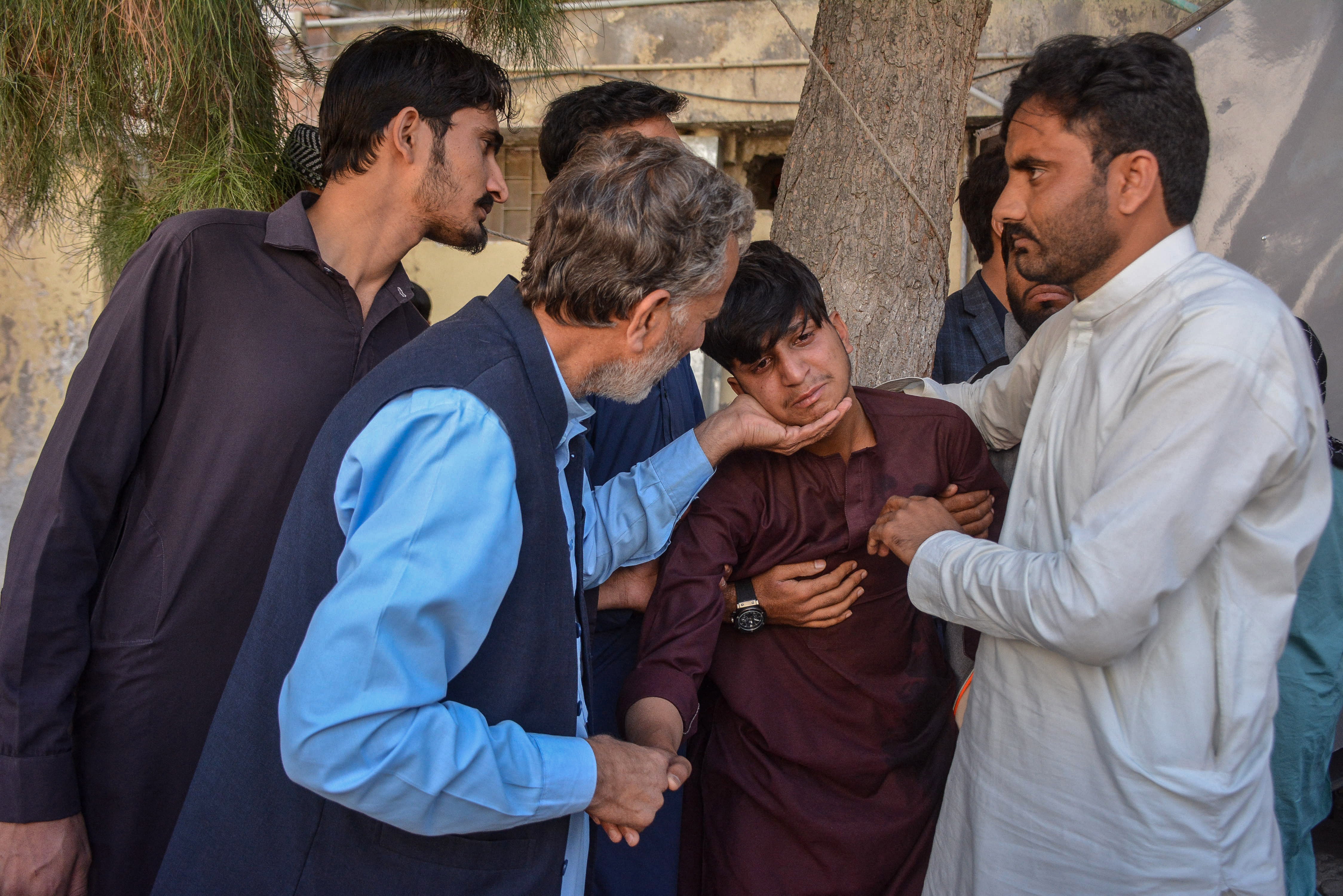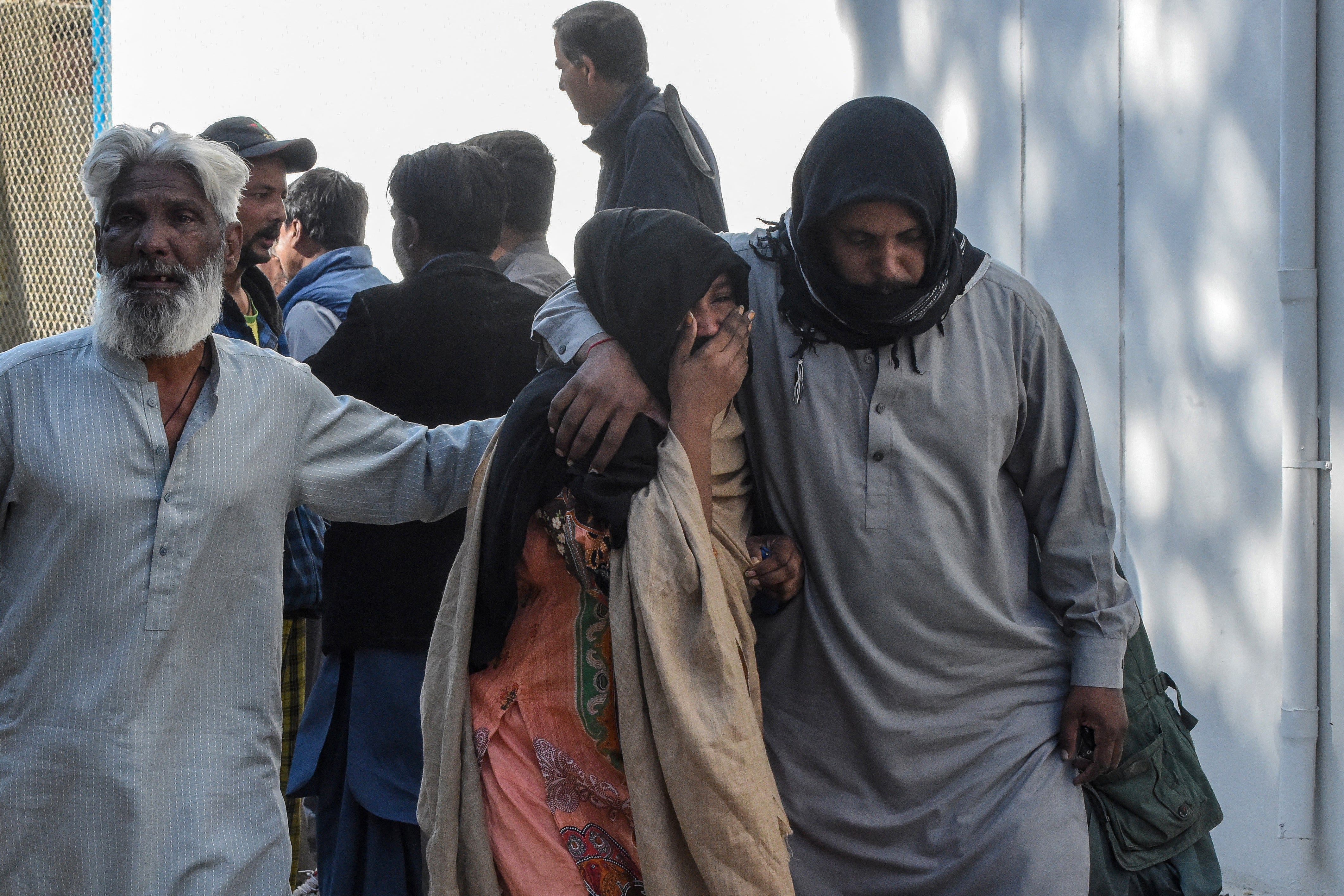Your support helps us to tell the story
From reproductive rights to climate change to Big Tech, The Independent is on the ground when the story is developing. Whether it's investigating the financials of Elon Musk's pro-Trump PAC or producing our latest documentary, 'The A Word', which shines a light on the American women fighting for reproductive rights, we know how important it is to parse out the facts from the messaging.
At such a critical moment in US history, we need reporters on the ground. Your donation allows us to keep sending journalists to speak to both sides of the story.
The Independent is trusted by Americans across the entire political spectrum. And unlike many other quality news outlets, we choose not to lock Americans out of our reporting and analysis with paywalls. We believe quality journalism should be available to everyone, paid for by those who can afford it.
Your support makes all the difference.At least 26 people have died in a powerful bomb blast at a train station in Quetta, southwestern Pakistan.
More than 40 were wounded in the explosion that tore through the station in the early hours of Saturday.
“The blast took place inside the railway station when the Peshawar-bound express was about to leave for its destination,” said Muhammad Baloch, the senior superintendent of police operations.
Quetta is the capital of the restive Balochistan province, which has seen a growing threat in recent months from local militant groups.
Early photographs of the aftermath of the explosion showed the platform littered with passengers’ luggage.

“The target was army personnel from the infantry school,” said Mouzzam Jah Ansari, inspector general of police for Balochistan.
Mr Baloch said the attack “seems to be a suicide blast” but it was too early to say for sure. Around 100 people were present at the station at the time of the attack, Mr Baloch said, citing footage of the incident.

“So far 44 injured people have been brought to civil hospital,” Dr Wasim Baig, a hospital spokesperson, told Reuters.
Mohammad Omar, 22, was heading to his hometown of Jaffaradbad with his mother and brother when the bomb went off. “I was waiting for the train at the railway station along with my family when all of a sudden, a powerful blast took place,” he told Dawn from the hospital.
The death toll is likely to rise as some of the wounded passengers are in a critical condition, said Shahid Ring, a government spokesperson, earlier.
An investigation has been launched into the incident to ascertain the nature of the blast, he said.

The Balochistan Liberation Army, a separatist group that operates in the region, has claimed responsibility for the attack and said a suicide bomber targeted troops present at the railway station. Police officials said they are investigating the claim.
If confirmed, it would be the second deadly attack by BLA militants in a little over a month in Pakistan.
Pakistan Railways announced a temporary suspension of all train services to and from Quetta following the explosion. The Quetta station will remain closed from 11 to 14 November to secure the area, ARY News reported.
Prime minister Shehbaz Sharif said the “terrorists will pay a heavy price for their heinous act” as he called for a comprehensive investigation.
Pakistan’s interior minister Mohsin Naqvi announced an expansion of intelligence-based operations across the restive province. He said the attack was aimed at destabilising the country.
On 7 October, at least two Chinese nationals were killed after BLA militants carried out a bomb attack near the international airport in Karachi. The attack took place just a week before a high-level summit of the Shanghai Cooperation Organisation (SCO), raising security concerns for the meeting of world leaders.
BLA militants have repeatedly targeted security forces and foreigners, especially Chinese nationals who are in Pakistan as part of Beijing’s multibillion-dollar Belt and Road Initiative, which includes the construction of major infrastructure projects in Pakistan.
The militant group sees the presence of foreign workers as a threat to local resources and its grip on the restive southwestern region. The region has been battered by a decades-old insurgency that has destabilised Balochistan and created security concerns for projects trying to access the province’s untapped resources.
In August, at least 73 people were killed in Balochistan after separatist militants attacked police stations, railway lines and highways.

Join our commenting forum
Join thought-provoking conversations, follow other Independent readers and see their replies
Comments